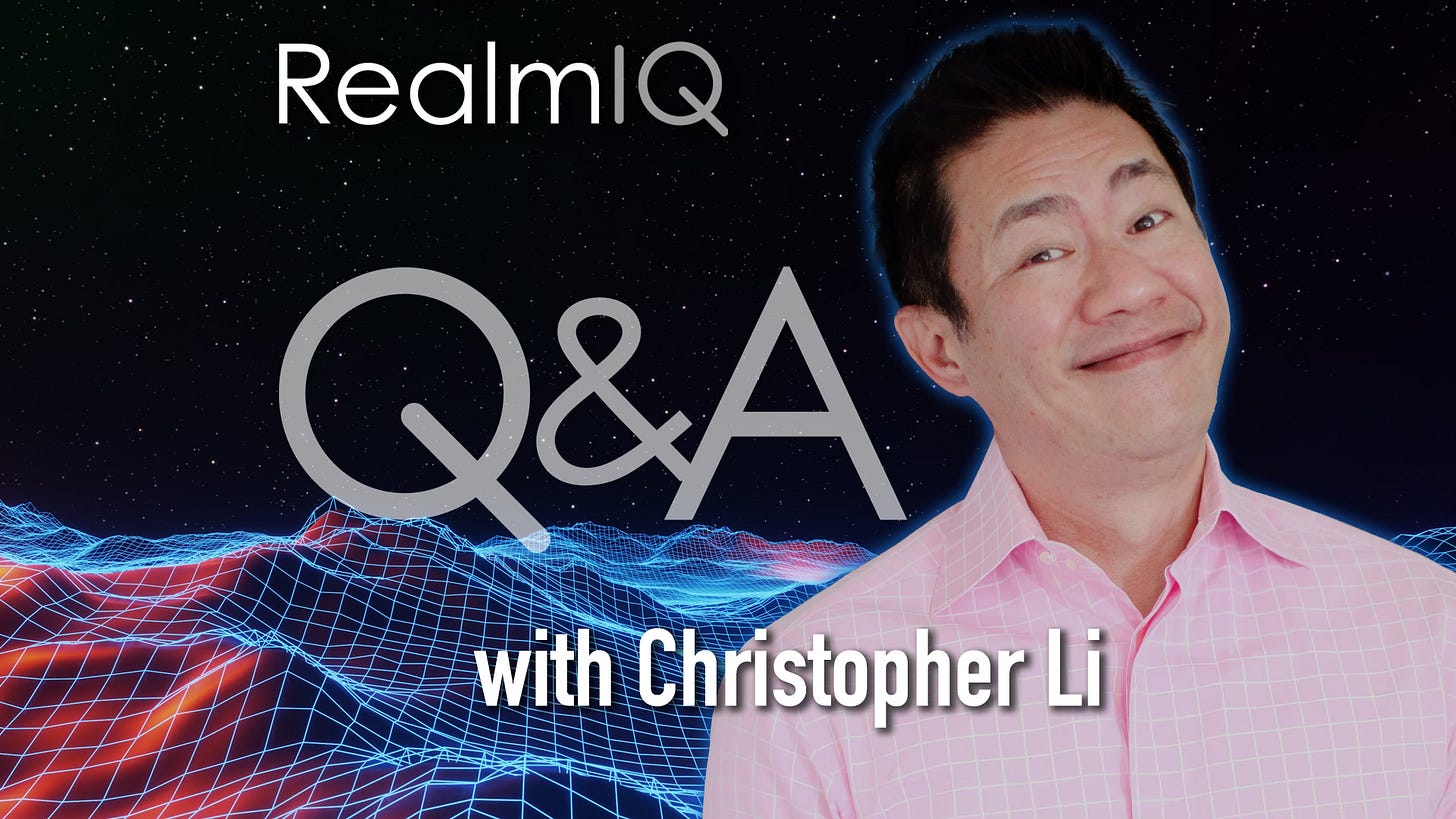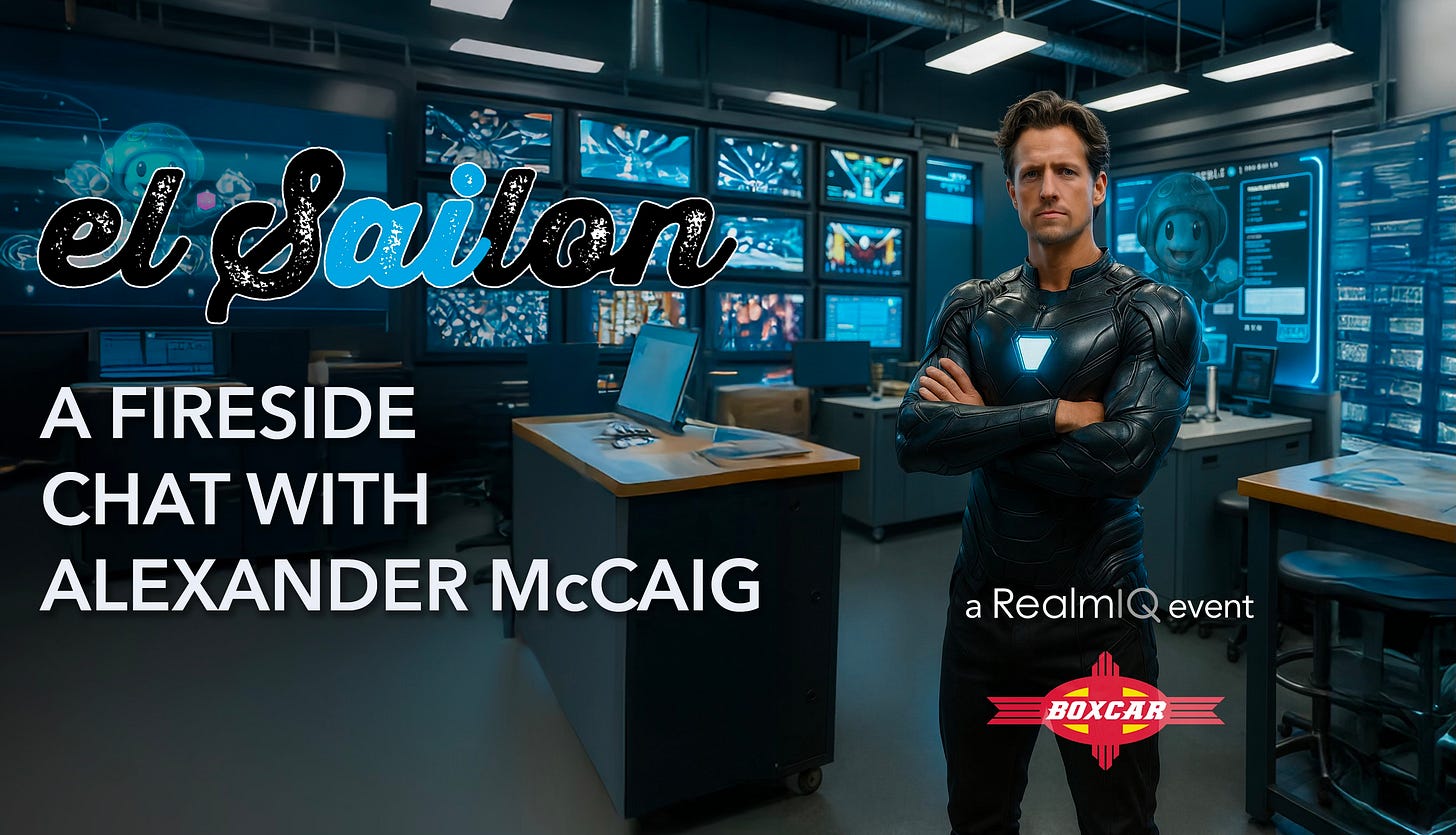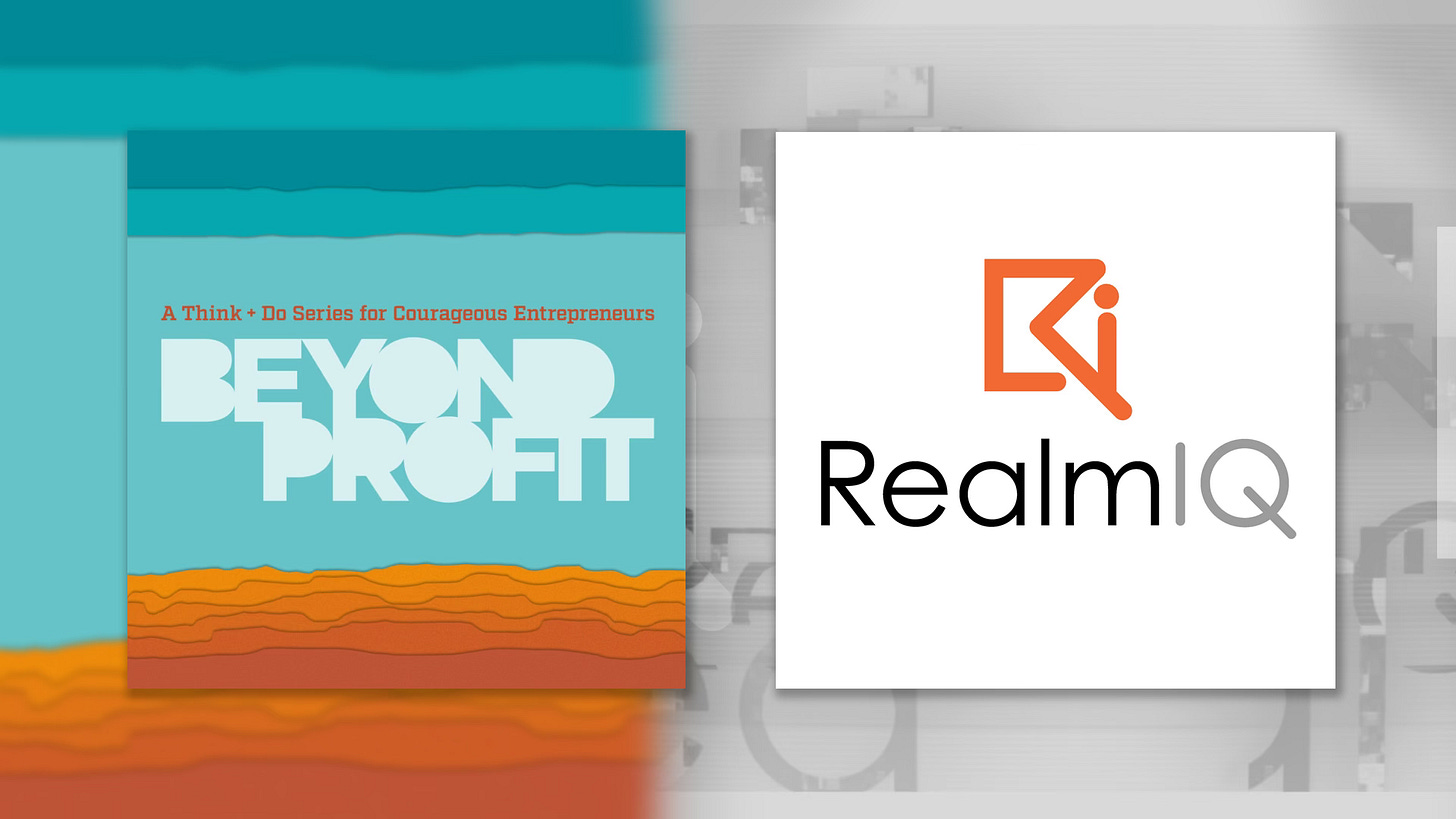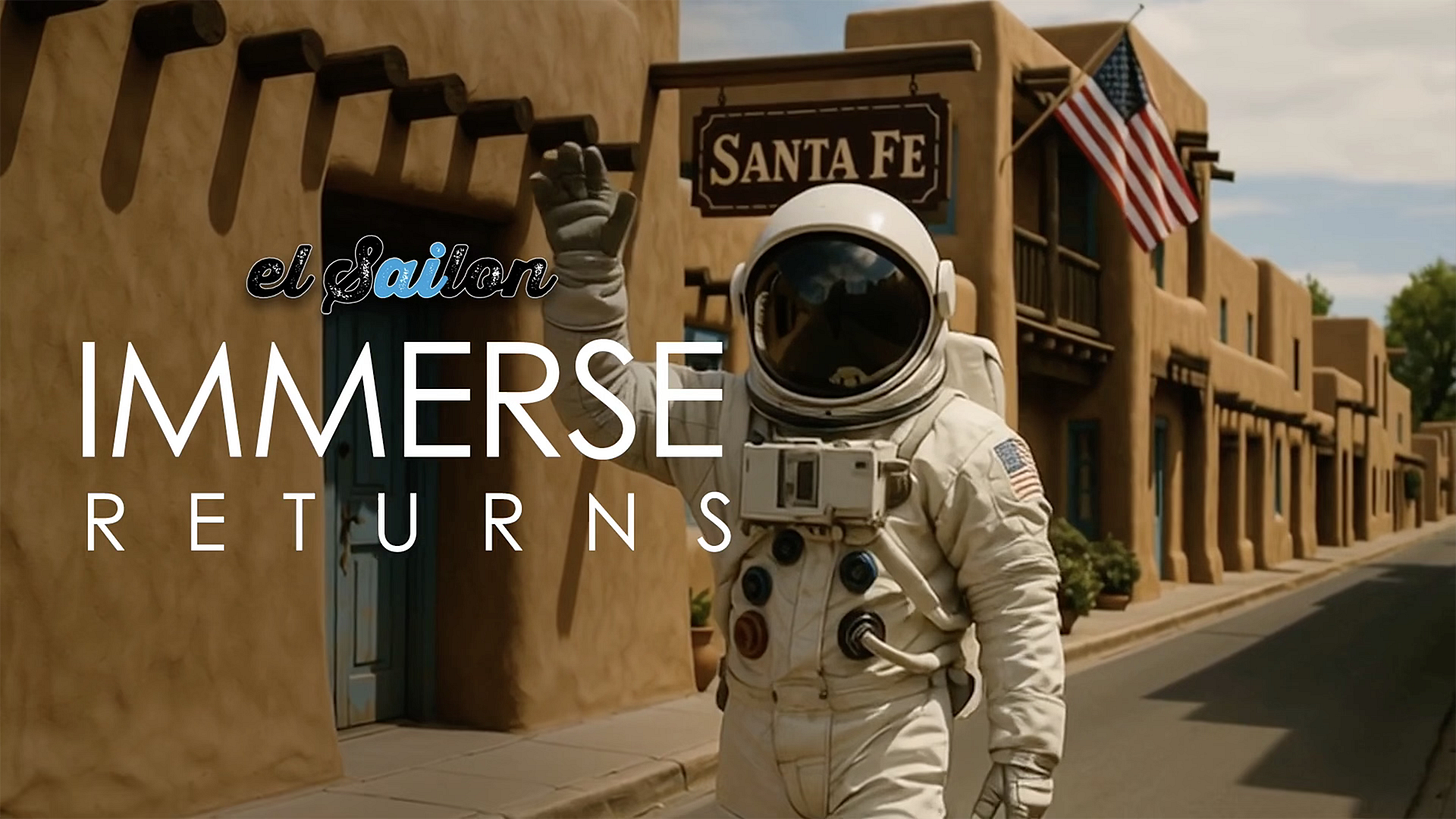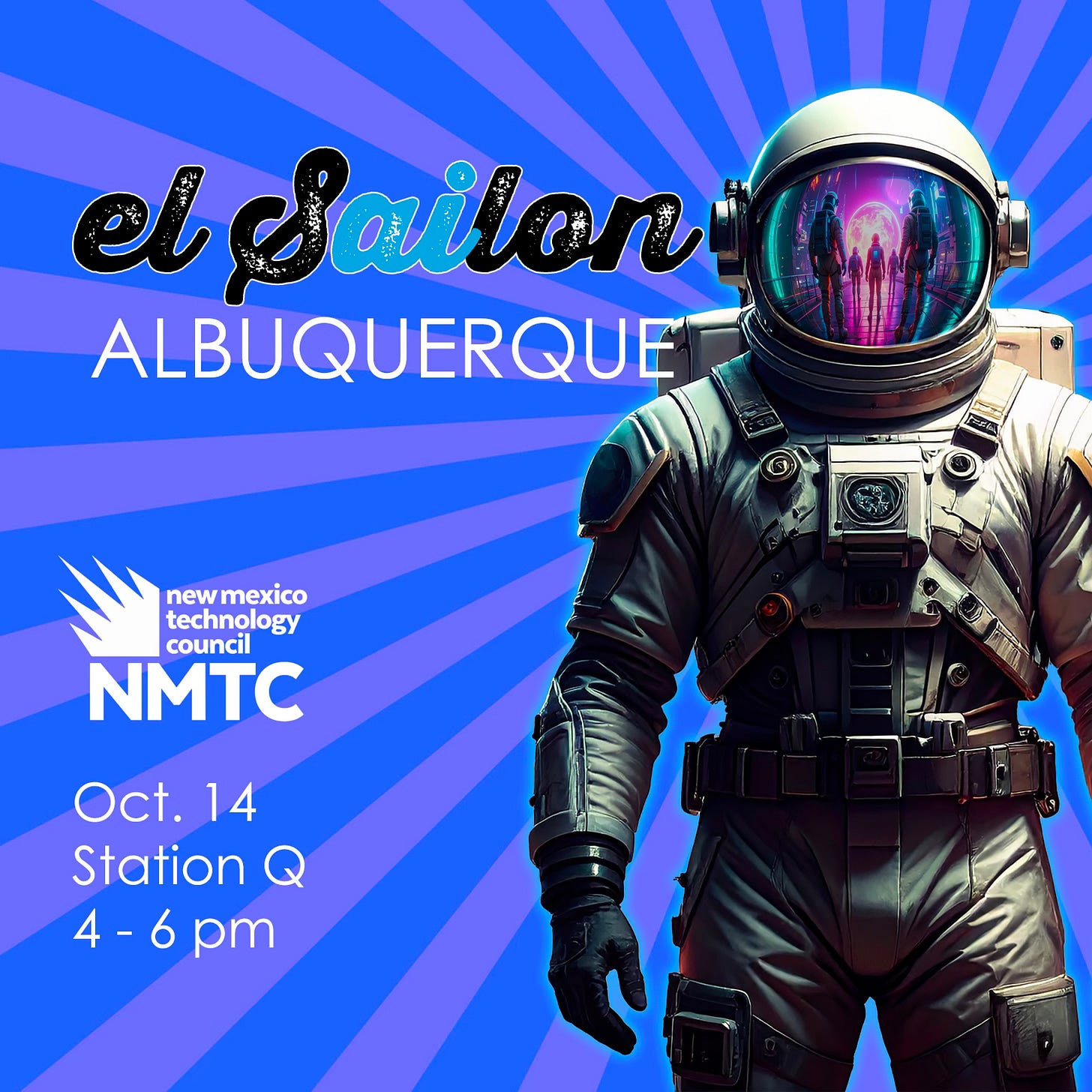I have not talked a lot about health and AI here, but In this Realm IQ session, I speak with Chris Li, a serial “tech-for-good” entrepreneur and co-founder/executive director of Say It Mental Health.
“Gen Z is the AI generation. It’s their responsibility to train it with empathy.”
— Chris Li
Chris’s nonprofit combines peer-led campus clubs with a gamified app, aiming to reduce stress among Gen Z students—reporting a 29% daily stress reduction in its pilot program. A five-time founder with two successful exits, Chris has taught business management at UCLA for over a decade and is now focused on building emotionally intelligent AI. The conversation explores the promise and risks of AI in mental health, the importance of peer support, challenges in reaching Gen Z, and Chris’s mission to train AI to be more empathetic while prioritizing trust, transparency, and ethical data use.
Q&A
Curt: Let’s start with mental health and ChatGPT. Many students are using it almost like an online therapist. What’s the good and bad of that?
Chris: It’s true—Gen Z students often turn to ChatGPT as a companion. OpenAI didn’t intend it for that use, but it’s available 24/7 and is nonjudgmental, which appeals to students who often feel alone. However, ChatGPT has no emotional intelligence (EQ) and can’t understand human nuance. That’s dangerous for those dealing with serious mental health issues or trauma—it may miss warning signs entirely.
Curt: Can you explain what EQ is and why it matters here?
Chris: EQ is emotional intelligence—awareness of emotions, empathy, and interpersonal skills. IQ matters, but EQ often determines real-life success because most of us work with others. AI is great at logic and language, but it can’t detect sarcasm, emotional cues, or subtle distress like a human can.
Curt: The texting generation often relies on emojis to convey feelings. Has this impacted their EQ?
Chris: Gen Z is emotional and socially conscious, but COVID isolation and tech habits shaped their communication. They do want in-person interaction—if it’s engaging. They crave authentic, positive experiences, not just lectures.
Curt: You’re the founder of an AI-driven nonprofit. What problem are you solving, and how did you get here?
Chris: We don’t call ourselves an AI company. Our mission started with improving mental health services for Gen Z. Access isn’t the main issue—services exist—but they’re designed by older generations and don’t resonate with students. We redesigned delivery through a 24/7 app with daily emotional check-ins, creative expression, and peer support. Along the way, we realized we were collecting valuable emotional data that could help train AI to be more empathetic.
Curt: So you’re solving two problems: better mental health access and training AI with emotional layers?
Chris: Exactly. The first is making support accessible and relatable. The second is contributing emotional datasets to AI research to improve empathy in large language models.
Curt: Are you building your own LLM?
Chris: No, we’re a small nonprofit. We’ll partner with AI companies—if they meet strict criteria—to use our data only for empathetic AI training, never for commercialization.
Curt: What safeguards do you have around data sharing?
Chris: Everything is opt-in, fully transparent, and partner-specific. We follow GDPR-level standards, naming exactly who data is shared with and why. Users decide what data they share. We aim to exceed legal requirements because trust is critical.
Curt: What’s the current mental health picture for ages 10–24?
Chris: It’s alarming. In the U.S., 42% feel hopeless; nearly one-third show signs of depression. Suicide is now the second leading cause of death in this group. Academic pressure, competition, cultural stigma, and early panic attacks are major issues. The job market is also increasingly competitive, adding more stress.
Curt: Tell us more about your platform.
Chris: Say It Mental Health is a 501(c)(3) nonprofit. We have a beta app launching next year and run peer-led campus clubs modeled after mutual-aid groups like AA—no white coats, no lectures, just trust circles. We’ve piloted at two universities and two high schools, and plan to expand to 100+ campuses.
Curt: Where are you with funding?
Chris: We have some corporate sponsors like Adobe, but we’re seeking more foundation and corporate support to scale.
Curt: How can people find you?
Chris: Visit sayitmentalhealth.org for more information, updates, and ways to support.
If you would like watch the full podcast, click here.
If you want to listen to it, click here.
AI Roundup
The Hidden Ingredients Behind AI’s Creativity
Image generators are designed to mimic their training data, so where does their apparent creativity come from? A recent study suggests that it’s an inevitable by-product of their architecture. Interesting read, but creativity is still deeply human, enigmatic and authentic.
Using AI for Work Could Land You on the Receiving End of a Nasty Lawsuit
"The real harm comes from the attorney's fees that you can get saddled with." For all its hype, artificial intelligence isn't without its psychological, environmental, and even spiritual hazards. Perhaps the most pressing concern on an individual level, though, is that it puts users on the hook for a nearly infinite number of legal hazards — even at work, as it turns out. Yes, there are legal dangers of AI use, especially in corporate settings. It is very important to develop an AI policy and train your employees AI literacy.
AI isn’t a job killer, it’s a job shifter. We're the biggest employment agency in the world and we can see where things are moving
We’ve been forecasting workforce trends for more than 70 years and AI is the cape, but humans are the superheroes. Interesting read from this perspective. Maybe there is hope.
Event Roundup
August 27 – AI for Startups. A free workshop. Santa Fe Southside Library. This event is part of the Santa Fe Small Business Navigator Program, a free service funded and championed by the City of Santa Fe Office of Economic Development to strengthen our local economy by supporting small businesses and entrepreneurs. https://lu.ma/w5jhe9sb
September 9 - El Sailon – Boxcar. Alexander McCaig sits down with Curt Doty for a fireside chat. https://www.realmiq.com/events-1/4l29nfwht8ge2tync42kjxrkt42xyt
September 10 – Creative Santa Fe – Christ Church Santa Fe. RealmIQ was recently nominated by Creative Santa Fe along with Kat Walsh and MAKE, as a finalist in their Emerging Local Hero award which celebrates community resilience with the BEYOND PROFIT Local Hero Awards, a quarterly recognition of changemakers helping New Mexico lead in sustainability and innovation. https://creativesantafe.org/events/beyond-profit-power-beneath-our-feet-geothermal-energy-in-new-mexico/
September 11,12 – El Sailon: IMMERSE - AI Marketing for Newbies. A 2 Day workshop with Curt Doty. Santa Fe Business Incubator https://www.realmiq.com/events-1/el-sailon-immerse-1
October 14 – El Sailon: Albuquerque – Q Station. Thanks to New Mexico Tech Council for this new partnership. https://www.realmiq.com/events-1/el-sailon-albuquerque
October 28 – Health AI. Sandia Golf Club. I am speaking! Save the Date. https://healthinno.io/healthai



